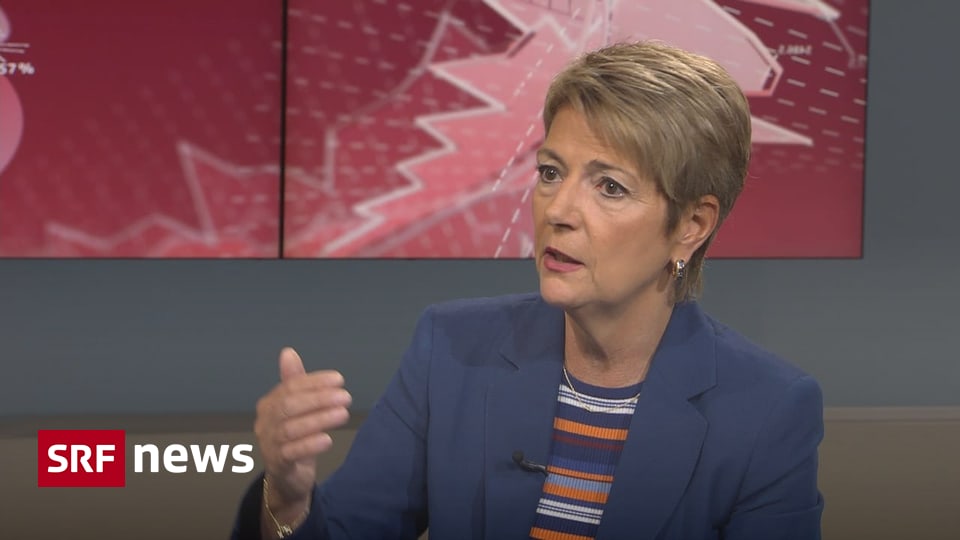Contents
The Federal Councilor wants more equity for foreign UBS subsidiaries. The bank puts risks for taxpayers into perspective.
Does UBS need more equity to prevent a new banking crisis? The Federal Council thinks: yes. In the future, investments in subsidiaries of the major bank should be covered by up to 100 percent of their own funds.
In the Eco Talk, Federal Councilor Karin Keller-Sutter repeats her demand: “So that in the end it is not the taxpayers and the state who bear the risk.” With more equity, a bank can be wound up better in an emergency.
According to rough estimates, additional equity capital would cost UBS 15 to 25 billion francs. Finance Minister Karin Keller-Sutter does not confirm the number, but she describes it as “plausible”.
Equity vs. competitiveness?
Colm Kelleher, Chairman of the Board of Directors of UBS, recently downplayed the importance of equity capital: “We are seriously concerned about some discussions regarding additional capital requirements. Additional capital is the wrong means.”
In the event of a risk, there are rules that the banks don’t like to see.
Keller-Sutter says Switzerland should remain a competitive financial center. “The bank has to make sure that it has as much profit as possible and is attractive to investors.” But: “In the event of a risk, there are rules that the banks don’t like to see, but we have a different role.”
The state’s goal is to limit the risk. This is also because UBS’s balance sheet is twice as large as the Swiss gross domestic product: “We have to take measures so that resolution is possible in the event of a crisis.”
The Federal Councilor attests that this is probably not necessary in the short term. The bank is well positioned and managed. “But we have to prepare for what could happen in ten or 20 years and have the necessary instruments to intervene in the event of a crisis and limit the damage to our country.”
Discussion about state guarantee
The Federal Councilor and UBS also do not agree on whether the state would step in in the event of a crisis.
Sergio Ermotti finds the discussion about an implicit state guarantee worrying. It is “a factually incorrect claim that UBS has an implicit government guarantee. “The risks of UBS are borne by the shareholders, by the holders of the AT1 instruments and loss-absorbing TLAC bonds, not by the taxpayer,” said Ermotti.
UBS was not “too big to fail,” the bank’s management further announced. Economist Aymo Brunetti says in the Tages-Anzeiger: “That’s absurd.”
Karin Keller-Sutter says: “If you assume that emergency liquidity would be mentioned in the event of a crisis, for example that the state would intervene, then you have to say it is an implicit state guarantee.” If a bank were to be restructured or even liquidated, there would of course be risks for the state or for taxpayers.
The topic of UBS will keep the Federal Council and Parliament busy for a while. Concrete implementation packages for the proposed measures are to be presented by mid-2025.
